
Mind-Gut Connection: How Your Gut Influences Mental Health
Key Takeaways
- The gut contains trillions of bacteria, highlighting the vast diversity of the microbiome ecosystem.
- Research highlights the mind-gut connection and links gut health to mental health conditions like anxiety and depression.
- Alterations in the gut microbiome can impact mood swings and fatigue, reflecting their influence on mental well-being.
- Introducing probiotics and fiber-rich foods can lead to positive shifts in mental health.
- Gut microbes produce essential neurotransmitters like serotonin and dopamine, which are crucial for mood regulation.
- Inflammation signals from an unhappy gut may contribute to conditions such as depression and anxiety.
Understanding the Mind-Gut Connection
Gut-Brain Axis: Communication Pathways
How Gut Health Affects Mental Well-being
| Food Type | Benefits for Gut Health | Benefits for Mental Health |
|---|---|---|
| Fiber-Rich Foods | Promote regular digestion | Help manage anxiety levels |
| Probiotic Foods | Support beneficial bacteria | Enhance mood and cognitive function |
| Omega-3 Fatty Acids | Reduce inflammation in the gut | Boost brain health and reduce depressive symptoms |
| Vitamin D | Strengthen gut lining | Improves mood regulation |
Diet and the Mind-Gut Connection
My diet is crucial in strengthening the mind-gut connection and influencing my mood. By eating certain foods, I can change my gut balance and, in turn, my emotional well-being. This insight allows me to enhance my emotional health through mindful food choices.
Impact of Fiber-Rich Foods on Mood
Eating fiber is particularly beneficial for my gut bacteria, which positively impacts my mood. Foods like fruits and vegetables are especially effective in this regard. They not only improve my brain function but also help regulate my appetite.
Moreover, studies show that the right probiotics can increase GABA neurotransmitters, which help reduce my stress and anxiety. Therefore, fiber is key to maintaining a healthy gut and a happy mind.
Fermented Foods and Gut Health
Adding fermented foods like yogurt and kimchi to my diet has been transformative. These foods introduce beneficial bacteria to my gut, which also supports my mental health. In addition, eating these foods has been shown to lower my stress hormones.
Since serotonin, a mood booster, is primarily produced in my gut, this underscores the importance of diet in mental health. Fermented foods not only improve my gut health but also contribute to a better mood, making me feel more balanced and content.
Psychobiotics: The Future of the Gut-Brain Link in Mental Health
Chronic inflammation can severely disrupt the mind-gut connection, contributing to mental health challenges. Long-lasting inflammation, often due to poor gut health, is tied to cognitive issues like anxiety and depression. It’s interesting how problems in my gut can influence my feelings of worry.
When my gut bacteria aren’t balanced, my body may react with increased inflammation, which can negatively impact my emotions.
A study showed that gluten sensitivity is linked to brain inflammation and a higher risk of dementia. This finding highlights how what I eat affects my brain health and mood. Additionally, using probiotics might help prevent gut problems that elevate stress levels. Minor, ongoing inflammation can lead to deep sadness, underscoring the importance of keeping inflammation in check.
Strategies to Combat Inflammation for Better Mental Health
Chronic stress is a major cause of inflammation. When my adrenal glands become overwhelmed, they struggle to manage inflammation effectively, which can disrupt the balance of essential mood-regulating chemicals like serotonin. Research shows that inflammation markers are closely linked to symptoms of depression, indicating that combating inflammation is critical to maintaining a happy mind.
The health of my gut also plays a crucial role in my body’s ability to fight illness and inflammation. This suggests that keeping my gut healthy can make me more resilient mentally. Regular exercise, stress-reducing activities, and ensuring adequate sleep are effective strategies to combat inflammation. Additionally, foods rich in omega-3 fatty acids or those with anti-inflammatory properties, like turmeric, can further support mental well-being. Improving my mental health might start with caring for my gut, serving as a reminder to look after my mind and the bacteria in my gut.
Dietary Recommendations for Gut Health
Here, I’ll share how to eat better for a diverse gut microbiome. Adding a mix of fibrous and probiotic-rich foods is essential. This helps maintain a good balance of friendly gut bacteria. Surprisingly, my diet can change my gut microbiome in a day. Check out these tips:
- Fiber-Rich Foods: Fill up more on fruits, veggies, beans, and whole grains for fiber.
- Probiotic Sources: Eat more yogurt, kefir, and fermented foods for healthful bacteria.
- Healthy Fats and Proteins: Choose healthy fats and proteins like avocados and nuts for mental well-being.
- Limit Processed Foods: Eat less sugar and refined carbs for better gut and mental health.
Exercise and its Benefits on Gut Microbiota
Getting active is great for my gut bacteria. Keeping up with regular workouts can make my gut happier. Here’s how I stay active:
- Incorporate Regular Activity: Try 150 minutes of moderate exercise weekly for a diverse gut.
- Explore Different Workouts: Mix your workouts with jogging, swimming, or dancing to keep things fun.
- Prioritize Consistency: Stick to your exercise plan for lasting gut health improvements.
- Mind-Body Practices: Add yoga or tai chi for your mind and gut health.

Understanding the Impact of Inflammation on the Mind-Gut Axis
Strategies to Combat Inflammation for Better Mental Health
Chronic stress is a significant cause of inflammation. When my adrenal glands become overwhelmed, they struggle to manage inflammation effectively, which can disrupt the balance of essential mood-regulating chemicals like serotonin. Research shows that inflammation markers are closely linked to symptoms of depression, indicating that combating inflammation is vital to maintaining a happy mind.
The health of my gut also plays a crucial role in my body’s ability to fight illness and inflammation. This suggests that keeping my gut healthy can make me more resilient mentally. Regular exercise, stress-reducing activities, and ensuring adequate sleep are effective strategies to combat inflammation. Additionally, foods rich in omega-3 fatty acids or those with anti-inflammatory properties, like turmeric, can further support mental well-being. Improving my mental health might start with caring for my gut, serving as a reminder to look after my mind and the bacteria in my gut.
| Inflammation Type | Duration | Impact on Mental Health |
|---|---|---|
| Acute Inflammation | Short-term | The local immune response is usually beneficial |
| Chronic Inflammation | Months to years | Linked to depression and anxiety |
| Low-Level Inflammation | Persistent | Contributing factors to chronic diseases |
Conclusion: The Mind-Gut Connection and Mental Health
FAQ
What exactly is the mind-gut connection?
The mind-gut connection shows how our gut and brain talk to each other. It tells us that our gut health can change our feelings and choices, making our gut like a “second brain.”
How does gut health affect mental well-being?
Gut health significantly shapes our mental state by making mood-regulating chemicals like serotonin. A troubled gut can make us feel more anxious or depressed. So, our digestive health is tied to how we think.
What role does the microbiome play in mental health?
Our gut microbiome, full of different microorganisms, helps digestion and affects our mind. A healthy microbiome makes neurotransmitters better, lowering the chance of feeling down. This shows how gut bacteria relate to mood problems.
What are psychobiotics?
Psychobiotics are unique probiotics that may help ease mental health issues by assisting our gut microbiome. Certain kinds can lessen feelings of anxiety and sadness, leading to new ways to treat mental health with food.
How can diet impact the mind-gut connection?
What we eat is critical to the mind-gut link. Foods high in fiber improve our gut bugs, boosting our mood by enhancing neurotransmitters. Eating fermented foods adds good probiotics, which helps us feel better emotionally.
What strategies can I use to improve my gut microbiome diversity?
Eat lots of different fiber-rich and probiotic foods for a richer gut microbiome. Staying active helps, too, so try to move more for your gut’s sake!
How does inflammation affect mental health?
Long-term inflammation caused by a bad gut balance can exacerbate mental health issues, such as anxiety or sadness. Keeping our gut healthy is essential to help keep our minds steady.
Source Links
General Gut-Brain Connection
- The Brain-Gut Connection: How Your Gut Health Affects Your Brain Function
- What To Know About the Gut-Brain Connection
- The Brain-Gut Connection
- The Gut-Brain Connection: How it Works and The Role of Nutrition
- Gut Brain Connection
- The Mind-Gut Connection: What Is It and How Did It Evolve?
Scientific Research and Insights
- The Gut-Brain Axis: Influence of Microbiota on Mood and Mental Health
- The gut-brain axis: interactions between enteric microbiota, central and enteric nervous systems
- The Gut Microbiome and the Brain | Hopkins Bloomberg Public Health Magazine
- Gut-brain communication turned on its axis
- The microbiota–gut–brain axis: pathways to better brain health. Perspectives on what we know, what we need to investigate and how to put knowledge into practice – Cellular and Molecular Life Sciences
Books and Reviews
- The Mind-Gut-Immune Connection: Understanding How Food Impacts Our Mind, Our Microbiome, and Our Immunity (Paperback)
- The future of psychobiotics
- Psychobiotics: Are they the future intervention for managing depression and anxiety? A literature review
Practical Applications and Health Tips
- Turns out your ‘gut feelings’ are real. How gut and mental health are connected | News
- How to Improve Your Gut Health and Mental Health
- You are what you eat: Diet may affect your mood and brain function
- The Role of Diet on the Gut Microbiome, Mood and Happiness
- How to Improve the Gut-Brain Connection: 4 Ways to Keep Them Both Healthy
Impact on Mental Health
- The gut brain axis: What it is and how to improve it
- The mind-gut connection, with Faith Dickerson, PhD, and Emeran Mayer, MD
- How gut bacteria are controlling your brain
- More Than a Gut Feeling: How Your Microbiome Affects Your Mood | Cognitive Enhancement
- Your gut microbes may influence how you handle stress
- How bacteria in your gut interact with the mind and body
- Gut microbiota’s effect on mental health: The gut-brain axis
- The Neglected Link Between Inflammation and Mental Health
- Understanding the Gut-Brain Connection: The Impact on Mental Health – Families for Depression Awareness
- The Gut-Brain Connection: How It Works and Why It Matters for Mental Health and Nutrition





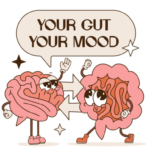











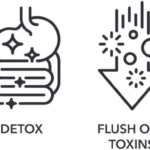
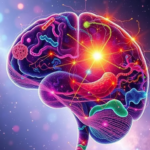


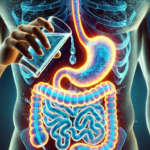
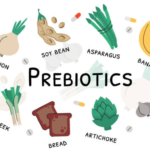
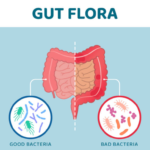









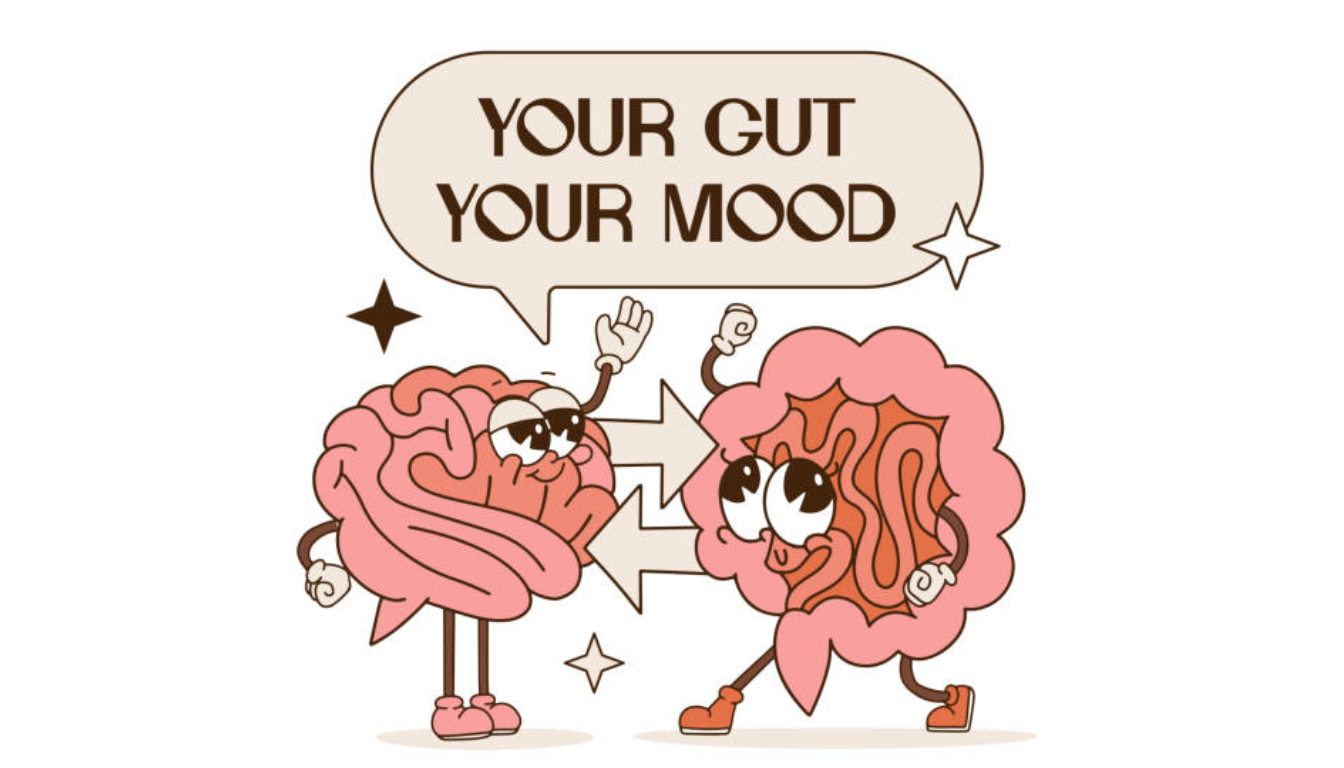






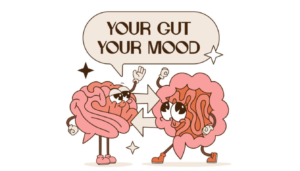



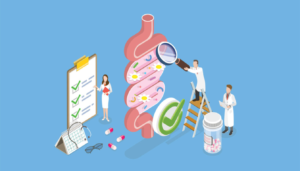
Post Comment